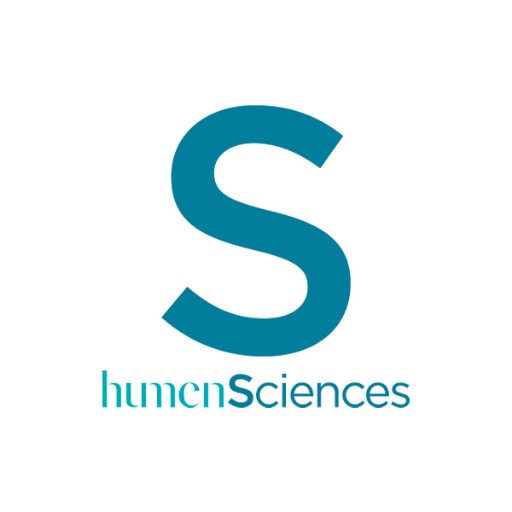
Sacha Altay
@Sacha_Altay
Followers
3K
Following
6K
Media
170
Statuses
2K
Postdoc @IPZ_ch🇨🇭| @Cognition_ENS PhD 🇫🇷 | 🔎 Misinformation, misperceptions, social media & (dis)trust 🦹♂️
Paris, France
Joined May 2018
Reminder to join us on the other place🦋 I use it more often that X nowadays and the signal to noise ratio is amazing compared to here...
0
2
13
The fall of "When prophecies fail": Another social psychology classic turns out to be based on fabrications and lies. In 1954, Dorothy Martin predicted an apocalyptic flood and promised her followers rescue by flying saucers. In “When Prophecy Fails “ (1956), the
56
367
2K
What if people appreciate having an abundance of content and communication, more than they feel overloaded by it? Anne Schulz et al decided to have a look. Results? "We found that appreciation for abundance was about twice as common as overload". Paper: https://t.co/ChAJF02gAh
0
2
16
We continue with our seminar series next Wednesday with Dr Sacha Altay @Sacha_Altay from University of Zürich, talking about the problem of misinformation. Full details on our website ( https://t.co/PdGV6JUaov). See you there!
1
3
15
Another important behavioral (vs survey) social media consumption research (from @RoeeLevyZ, @PriceTheorist & co-authors). 45% of voters only see 5 election-related exposures per day (consumption is driven by heavy consumers). Steady until EDay w/ small peaks around events
3
8
23
“Democracy,” said H.L. Mencken, “is the theory that the common people know what they want, and deserve to get it good and hard.” I apply this idea to the democratising character of social media and connect it to the rise of right-wing populism: https://t.co/fdl1Bf27qD
2
16
47
🗞️ 🤖 Weekend reading anyone? For the launch of @ReadTransformer as a standalone publication, they invited me to contribute a piece on what persuasive AI might mean for democracy and elections.
2
9
10
Mon livre est en librairie depuis hier !
PARUTION | "Histoire naturelle de la fiction" d'Edgar Dubourg @EdgarDubourg est #enlibrairie. L'auteur interroge ce paradoxe troublant : pourquoi tant d’êtres humains se passionnent pour des personnages et des mondes qui n’ont jamais existé ?
1
4
18
Glad a more nuanced view of reach and effects of online misinformation is getting mainstream!
1
5
27
This is good news for debriefings in misinformation research: Debriefings that include fact-checks of the false claims used in the experiment reduce false beliefs, improve attitudes towards the study, and show no signs of negative effects. Feedback much welcomed :)
New working paper! 🚨 Are debriefings in misinformation effective? ✅Only specific ones (with fact-checks) reduce false beliefs ⚠️Both slightly reduce belief in true info 🧠Specific ↑ learning 🟢General ↓ perceived manipulation 🔍Both ↑ transparency https://t.co/riKMePiYys
2
3
26
New working paper! 🚨 Are debriefings in misinformation effective? ✅Only specific ones (with fact-checks) reduce false beliefs ⚠️Both slightly reduce belief in true info 🧠Specific ↑ learning 🟢General ↓ perceived manipulation 🔍Both ↑ transparency https://t.co/riKMePiYys
1
6
26
How effective are user corrections on social media, and does adding a link to a fact check improve effectiveness? In piece led by @Sacha_Altay , we find corrections have small effects, adding a fact-check is unlikely to make corrections more effective https://t.co/hGdsh1oGC8 1/6
1
6
14
New blog! ‘Consequences of a skewed discourse around generative AI and elections’. Read why @_FelixSimon_ @oiioxford and @Sacha_Altay @IPZ_ch believe claims about the impact of generative AI on elections have been overblown: https://t.co/Gi2crTBK5J 1/2
1
6
6
In addition to the original UK results, we have now 👏replicated👏 this (TWICE) in the US. The main findings hold strong: information diets are a lot more diverse in attention than in engagement.
📄NEW PAPER📄 Ever wondered content people actually pay *attention* to online? Our new research reveals that you likely pay attention to far more varied political content than your likes and shares suggest
1
9
24
“The appeal of the “wrecking ball” narrative lies partly in its promise of a simple fix to complex problems.” Excellent summary, as usual, from @danwilliamsphil
https://t.co/Z7ywYQa843
asteriskmag.com
America’s epistemic challenges run deeper than social media.
2
14
25
Today (w/ @UniofOxford @Stanford @MIT @LSEnews) we’re sharing the results of the largest AI persuasion experiments to date: 76k participants, 19 LLMs, 707 political issues. We examine “levers” of AI persuasion: model scale, post-training, prompting, personalization, & more 🧵
14
129
438
Finally got round to reading this paper in detail. It’s a tour de force. If you’re interested in the potential impact of AI on election outcomes you should put it by your bedside. Key takeaway: let’s remain alive to, but healthily skeptical of, the possibility of large impacts.
How harmful is GenAI around elections? Will it trigger a misinformation apocalypse and upend elections? I am happy to finally be able to share @Sacha_Altay’s & my answers to these and other questions on which we have been working for a year and which is out via @knightcolumbia.
4
9
31
🚨Publication alert!! Our WhatsApp multimedia deactivation paper is now "just accepted" at @The_JOP. @CSMaP_NYU has published a full thread summarizing the paper! Check it out below 👇🏽👇🏽👇🏽
In the Global South, WhatsApp is more popular than X or Facebook. New in @The_JOP, we ran a WhatsApp deactivation experiment during Brazil’s 2022 election to explore how the app facilitates the spread of misinformation and affects voters’ attitudes. https://t.co/XUUmNBuU5y
0
12
41
NEW on our website @_FelixSimon_ and @Sacha_Altay on why should be worry more about humans than AI systems when it comes to elections in the age of generative AI Click to read https://t.co/q61Je2LAJ6
reutersinstitute.politics.ox.ac.uk
“The current concerns are overblown in light of the available evidence,” argue researchers Felix M. Simon and Sacha Altay.
0
8
13
Excellent corrective account by @_FelixSimon_ and @Sacha_Altay to the alarmist narratives on AI's prospective impact on elections propagated by AI-panic merchants.
How harmful is GenAI around elections? Will it trigger a misinformation apocalypse and upend elections? I am happy to finally be able to share @Sacha_Altay’s & my answers to these and other questions on which we have been working for a year and which is out via @knightcolumbia.
1
4
15





















